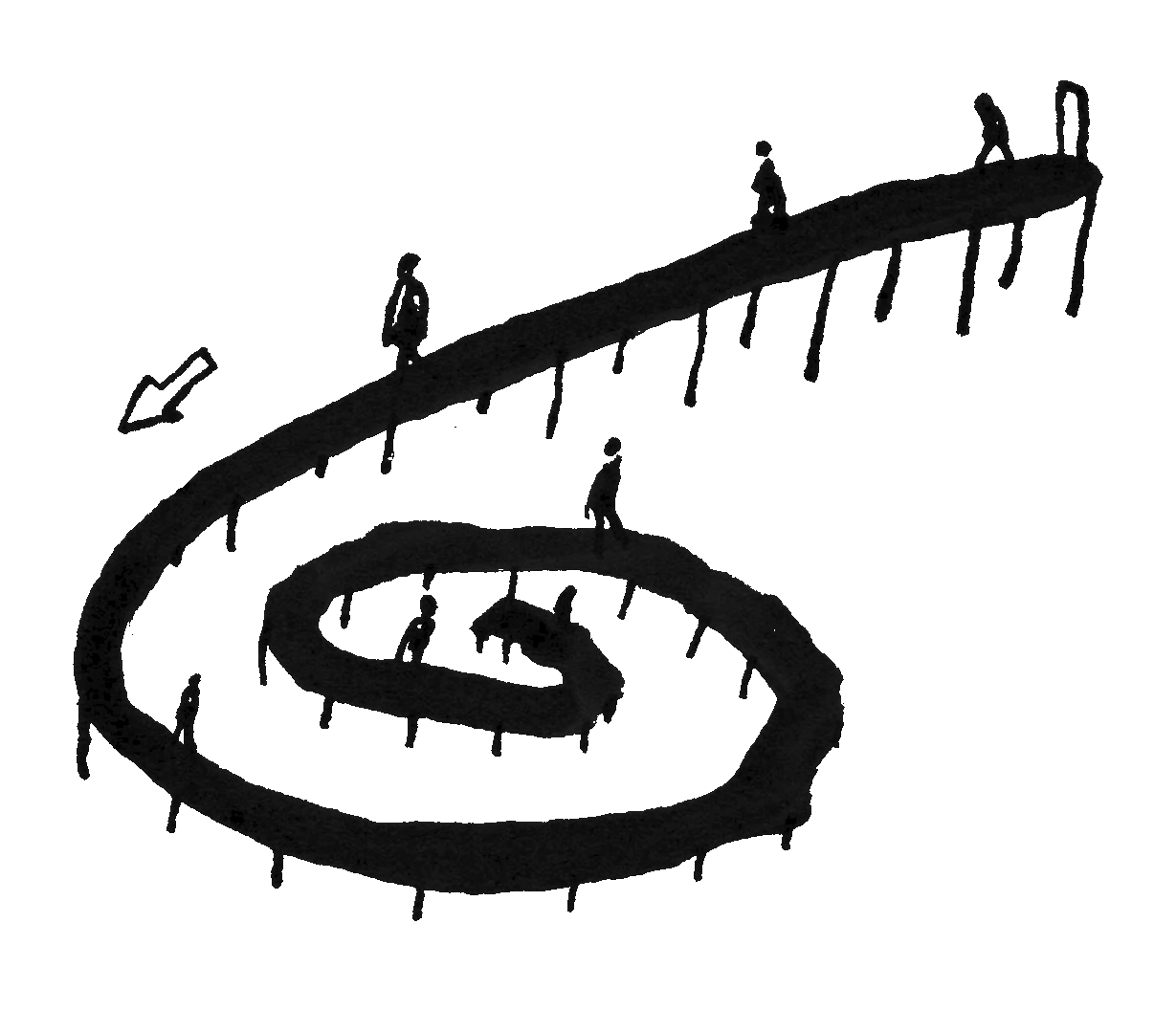How can we participate appropriately in complex systems

Excerpt from Designing Regenerative Cultures, a 2016 book by Daniel Wahl
In the early 1950s, the Dayak people in Borneo suffered from malaria. The World Health Organisation had a solution: they sprayed large amounts of DDT to kill the mosquitoes that carried the malaria. The mosquitoes died, the malaria declined; so far, so good. But there were side-effects. Among the first was that the roofs of people’s houses began to fall down on their heads. It seemed that the DDT was killing a parasitic wasp that had previously controlled thatch-eating caterpillars. Worse, the DDT- poisoned insects were eaten by geckoes, which were eaten by cats. The cats died, the rats flourished, and people were threatened by outbreaks of sylvatic plague and typhus. To cope with these problems, which it had itself created, the World Health Organisation was obliged to parachute 14,000 live cats into Borneo.
Hunter Lovins & Amory Lovins (1995)

Daniel Christian Wahl works internationally as a consultant and educator in regenerative development, whole systems design, and transformative innovation. He holds degrees in biology (Univ. of Edinburgh), and holistic science (Schumacher College), and his 2006 doctoral thesis (Univ. of Dundee) was on Design for Human and Planetary Health.
The story serves to illustrate that, in complex dynamic systems, any attempt to solve isolated problems without adequate consideration of their systemic context can trigger multiple unintended side-effects and even new and often more severe problems.
The German systems scientist, Professor Frederick Vester (2004: 36-37), identified a number of common mistakes that occur as teams are asked to intervene in or “manage” complex dynamic systems. Vester’s insights drew on a series of experiments by the psychologist Dietrich Dörner, who had challenged various transdisciplinary teams of 12 different specialists to improve the overall system and infrastructure design of a fictitious country in the developing world. A computer program modelled the impact of their strategies over a century of repeated cycles of interventions. The focus of the study was how teams of experts approach problem-solving, planning and systems interventions. Vester’s analysis of Dörner’s work provides the basis for a useful list of questions that we can ask ourselves to avoid the most common mistakes in dealing with complex systemic issues.
Have we defined our goals correctly? – Are we trying to maximise isolated parameters or to optimise the whole system?
Instead of focusing on increasing the ability and probability of survival for the system as a whole, we tend to get lost in solving individual problems, one problem at a time. We tend to search out “manageable problems” and inadequacies in the system, and then define these problems from the perspective of a single discipline rather than a whole-systems perspective.
Have we attempted a joined-up systems analysis by paying attention to dynamics rather than getting lost in static data?
We tend to be obsessed with the collection of huge amounts of measurable (quantitative) data. This results in very large data sets, but without paying attention to the qualitative aspects of the underlying interactions and relationships, we often fail to generate a joined-up and coherent understanding of the whole system. By exploring the potential feedback loops, limits, dynamics and key relationships within the system, we can move to a deeper questioning in search of organising principles and policies that structure the system and drive its behaviour. Since complex systems are living entities that change over time, it is often more useful to focus on dynamics and qualitative relationships than to obsess over collecting quantitative data at a particular point in time.
Since complex systems are living entities that change over time, it is often more useful to focus on dynamics and qualitative relationships than to obsess over collecting quantitative data at a particular point in time.
Are we avoiding the trap of creating irreversible emphasis?
There is a tendency to target issues that were initially identified as being the central parameters. If there are partial successes within a particular problem, these can become a favourite at the neglect of others. “Blind spots” in our systems understanding can have severe consequences. We can be surprised by unexpected side-effects of particular actions and fail to prevent dangerous run-away effects, as our focus is elsewhere.

Frequently personal aspirations to gain professional or political prestige are the main drivers behind large-scale changes that jeopardise systems dynamics.

Designing Regenerative Cultures (2016, Triarchy Press) is a wide-ranging analysis of what’s wrong with our societies, organisations, ideologies, worldviews and cultures – and how to put them right. The book covers the finance system, agriculture, design, ecology, economy, sustainability, organisations and society at large. Daniel Wahl explores ways in which we can reframe and understand the crises that we currently face and explores how we can live our way into the future.
Are we paying enough attention to the potential side-effects of our actions?
It can also be helpful to work with different scenarios. This allows us to explore and compare the potential outcomes of proposed actions and anticipate the possible results.
Are we carefully avoiding over-steering or over-reacting?
Initial interventions aimed at problem solving tend to be made hesitantly and usually start small. If, over the short term, there are no visible effects on the system, what follows tends to be a large-scale intervention. Once faced with the first unexpected feedback from the system – as the time-delayed effects of the initially small interventions have accumulated and are now amplifying the effects of the large-scale intervention – the most common reaction is to hit the brakes or try to reverse the interventions.
Are we avoiding acting in an authoritarian way?
Knowing or believing that we have the power and ability to change the system, along with the often mistaken belief that we have understood the system, often results in dictatorial behaviour. This is absolutely inadequate when dealing with complex dynamic systems. A more appropriate and effective way to affect such systems as a participant is to change them while going with, rather than against, their flow. Frequently, personal aspirations to gain professional or political prestige are the main drivers behind large-scale changes that jeopardise systems dynamics. Individuals try to impress through the size of the project they are proposing, rather than its functionality. The striving for power and respect tend to negatively influence the way we deal with complex systems. Appropriate participation in complex systems is about living these questions in humble awareness of the limits of our knowing. We have to keep asking ourselves:
How can we act with humility and future consciousness, applying foresight and transformative innovation in the face of the unpredictability and uncontrollability of complex dynamic systems?
Illustrations: Ivana Čobejová
Photos: cover photo source


